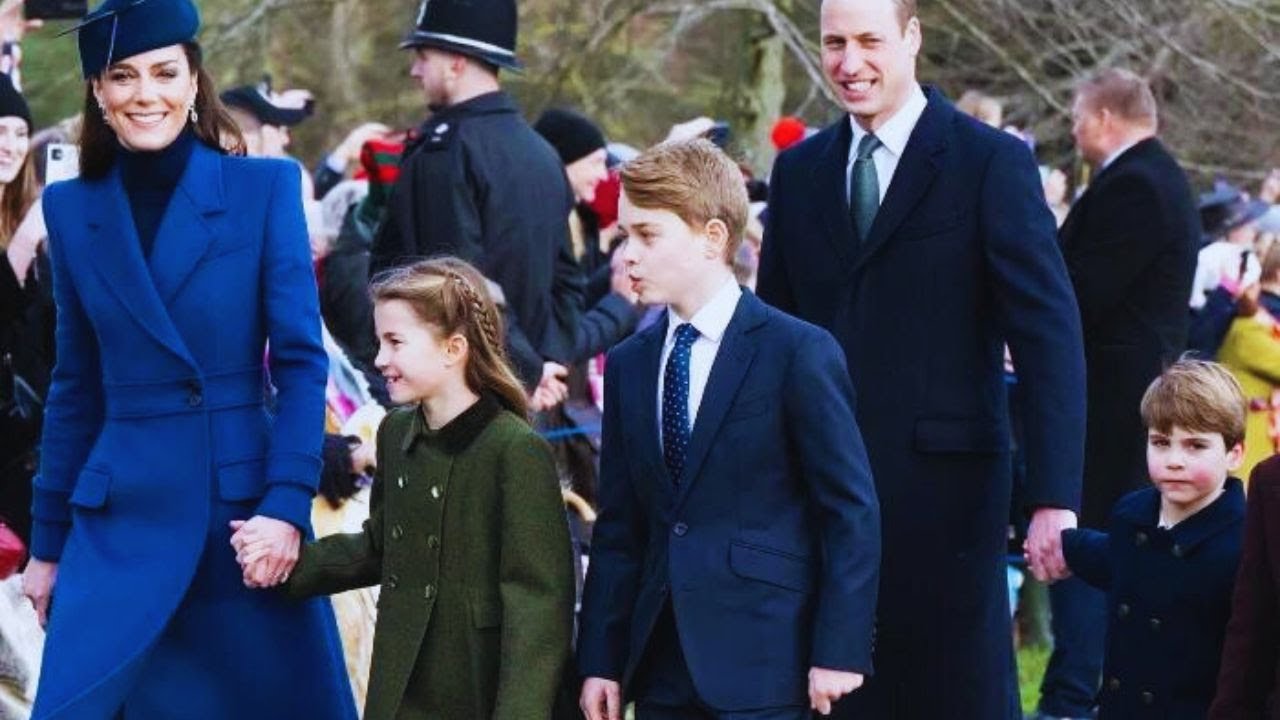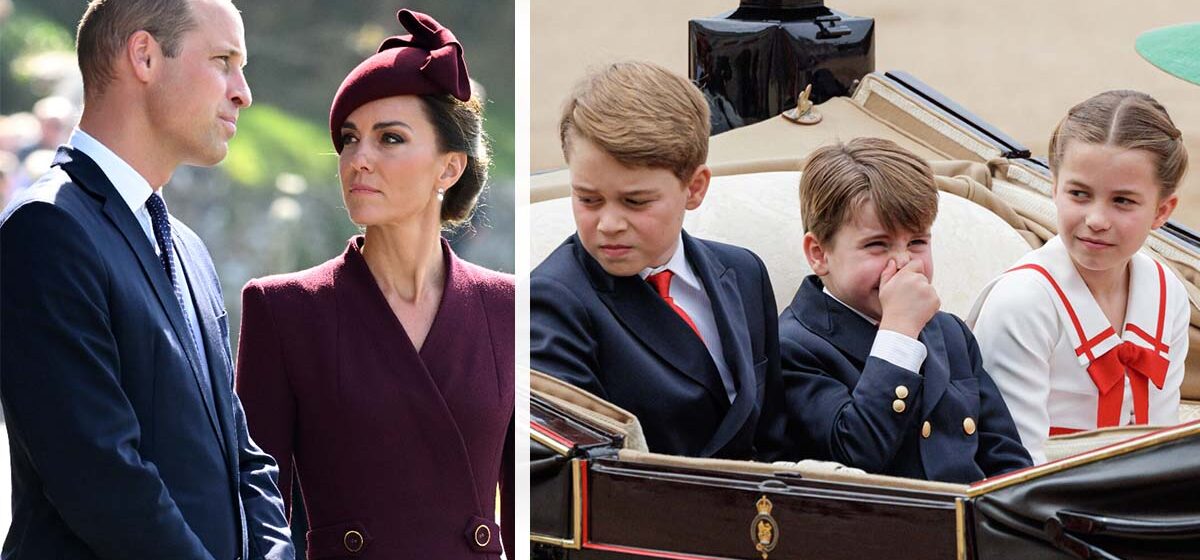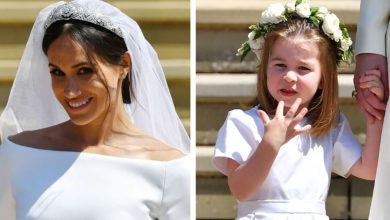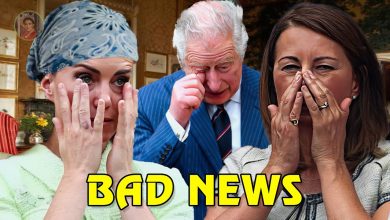Welcome back to our website where we share updates and untold stories about Catherine, Princess of Wales, and her royal family. Today, we bring you some news: Katherine’s children just leaked the hidden secrets of Prince William about the future monarchy.
Every smile and movement is carefully considered in the image of royalty. The most illustrious families, no matter how royal, have secrets behind their palace walls. Catherine’s progeny are likely to have revealed many surprises; they have shed light on the dynamics between Prince William, the royal entourage, and the Prince and Princess of Wales, as well as revealed some of Prince William’s most closely held secrets, ostensibly due to their innocence.
Could these whispers from the palace reveal the secrets of Britain’s cherished royals? The shocking details surrounding Prince William show that even in a superficially focused society, truth may emerge from unexpected places. The British monarchy represents both continuity and transition in a world where old practices collide with modernity. The royal family works hard to project an air of refined aristocracy, but behind the surface, tensions between the past and the present simmer.

Future kings’ aspirations and goals change as the world does. The future of the British monarchy has always been on King Charles’ mind, and he is known among historians for his insatiable curiosity and commitment to environmental stewardship on a worldwide scale. To meet the needs of modern society, he suggests a modern, adaptable structure. Charles has long viewed the Scandinavian monarchy as a model of contemporary relevance.
By interacting with the common people and championing progressive causes, these royals were able to bring tradition and progress into perfect harmony. King Charles has consistently maintained tight contacts with other European royals, addressing the challenges they face in a globalized context. He believes the monarchy must adopt transparency, sustainability, and public service to endure.
In his view, the British monarchy ought to embody stability and promote positive societal transformation. His media-centric upbringing shaped Prince William’s perspective, aligning him with his father’s progressive aspirations. As a father, William is sensitive to societal expectations and strives to safeguard his family’s privacy and well-being. He understands that the monarchy’s survival relies on reconciling tradition with modern media-influenced expectations.
William frequently asserts that the monarchy must maintain an authentic connection with its constituents. He desires a royal family that is more readily available and embodies youthful ideas. The plan highlights global issues such as mental well-being, environmental degradation, and fairness in society, which resonate with British, European, and global populations.
As reformist concepts proliferate, the monarchy’s refined facade may be vulnerable, especially when internal secrets emerge, as shown by the Wales children. Their candid admissions expose the tension between their traditional royal persona and their evolving roles. These unexpected revelations jeopardize the transitioning monarchy, destabilizing William and Katherine’s stability.

The monarchy’s future hinges on its capacity to reconcile ancient customs with contemporary adaptations necessary for relevance. A fresh phase in the British monarchy puts Prince George, Princess Charlotte, and Prince Louis at the forefront of a calculated legacy their parents, Prince William and Princess Katherine, are preparing.
Every decision made today by William and Katherine will impact their offspring and the British monarchy. However, what is most astonishing is the sincere entreaty that has rendered everybody speechless. Kindly forgive me; these utterances, spoken at a time of weakness, resonate throughout the palace, exposing the burdens William and Catherine endure while maneuvering through their life as royals.
These words illustrate the emotional strain of training their children for the monarchy and the significant, sometimes unrecognized, challenges of raising the future rulers. Princess Katherine and Prince William serve as the architects of a new royal era. Not only parents, but they will need to meticulously equip their progeny for both private and public existences marked by royal duty.
Amidst the burdens of history, the world anticipates how the loving parents of Prince George, Princess Charlotte, and Prince Louis are going to prepare them for the years to come. As the eldest child and potential ruler of England, Prince George of Wales bears the most significant burden. Although his path is highly visible, it is also challenging.
From personal experience, William understands the obligations of ascension to the throne. He and Katherine desire for George to experience a conventional childhood while equipping him for his significant responsibilities. This equilibrium is challenging, yet it illustrates William’s profound comprehension of royal existence.
The fragility underlying his subdued request for absolution and the significant weight of recognizing that his children, though innocent and oblivious, have entered a destiny that they were unable to select—a life in which their heritage dictates their future. Princess Charlotte has begun to influence the royal circle with her poise and intellect.

Charlotte has greater independence in pursuing her interests and discovering her individuality compared to George. Catherine, the guardian of Charlotte, fosters her inquiry and autonomy while instructing her on her responsibilities as a princess. William and Katherine want Charlotte to be ready for her unique challenges and opportunities.
Prince Louis, the smallest child of the Wales family, is currently establishing his royal status. William and Katherine provide a protective and encouraging environment for Louis, allowing him to engage in his interests free from royal duties. They comprehend that Louis must ascertain his role within the kingdom; hence, they plan to offer him meticulous guidance.
The extent of Prince George’s awareness of his future as king remains one of the most tightly protected secrets of the Wales family. He has consistently been aware of his royal status; however, William and Kate have opted to shield him from his impending responsibilities. The initial disagreement between William and his brother Prince Harry regarding their royal responsibilities initiated this approach.
William has publicly stated his desire to provide George with more conventional childhood experiences, deferring the actualization of his royal fate. Princess Charlotte is providing assistance to her brother George, which is atypical. Royal specialists suggest that Charlotte may aid George in navigating his upcoming responsibilities.
Charlotte might serve as a significant ally for George as both of them advance toward their royal roles, given that their relationship parallels that of Princess Anne and King Charles. Princess Charlotte’s cleverness and allure have disclosed some delightful familial facts about the castle. She stated that her father, Prince William, enjoys dancing, but only in private.
This little detail reveals William’s personal side as he appreciates motherhood in spite of his royal duties. Prince Louis claimed that his father, Prince William, prepares excellent waffles. This endearing disclosure illustrates a dad who takes pleasure in parenting in spite of his royal obligations.

William and Katherine persist in fostering and supporting Louis in the pursuit of his interests. They recognize that Louis must establish his position within the kingdom; hence, they are backing his efforts with the same diligence and reverence shown to George and Charlotte.
William and Catherine seem both traditional and progressive within the context of European monarchy. They observe the reactions of the royal households throughout Europe regarding shifting political and social circumstances. They are teaching the British monarchy how to stay relevant and earn respect in the 21st century by instilling modern ideas and royal legacies in the upbringing of George, Charlotte, and Louis.
The coming years will bring challenging decisions for William and Katherine concerning their children’s royal position. Their meticulous method of handling parenting and royal duties suggests they’re going to tackle these matters with a similar fusion of tradition and contemporary, as in their interactions with the public.
Their emphasis on personal fulfillment and autonomy for their offspring may signify a shift in expectations concerning future royals, embodying a more modern perspective on royal existence. The British media and public had divergent views about William and Catherine’s contemporary parenting approach.
Numerous folks like their hands-on parenting approach, which contrasts with traditional ways. Proponents assert that their efforts to integrate royal duties with everyday life for their offspring demonstrate the monarchy’s increasing accessibility and modernization. Certain traditionalists express skepticism over these advancements; they understand that permitting Princess Charlotte and Prince Louis to eschew royal responsibilities may undermine the monarchy.
Critics assert that the monarchy’s power relies on its traditions, and any deviation could compromise its future stability and relevance. The press’s coverage is similarly divided; certain websites commend William and Catherine as contemporary parents who have succeeded in reforming the monarchy. Some express concern that prioritizing personal gratification above public duty may hinder the monarchy’s ability to fulfill its responsibilities.
These remarks illustrate the need for William and Katherine to reconcile tradition with modernity in their roles as parents and royals. Prince William and Princess Katherine have discreetly made a decision that could influence the destiny of their children and the monarchy inside the intricate and tradition-laden domain of British royalty, where every move is subject to global scrutiny.
In contrast to their eldest son, Prince George, who is meticulously groomed for his future as king, Princess Charlotte and Prince Louis might feel dissuaded from pursuing royal roles. This complex decision significantly influences both the Wales children and the monarchy. The legacy of the heir and the spare of the British monarchy—an enduring practice of preparing the oldest offspring to ascend the position of monarch and perpetuate the royal lineage—clarifies this choice.

Younger siblings, referred to as spares, have had difficulties in establishing their role within the family, resulting in misunderstandings, conflict, and emotional challenges. Prince Harry, who abdicated in 2020, exemplifies the challenges of being the secondary heir. The spare grapples with defining their purpose within the stringent confines of royal obligation, perhaps leading to uncertainty and dissatisfaction.
Prince William aims to shield his offspring from these adversities after observing them firsthand. He understands that working royals have to make sacrifices and confront perpetual public scrutiny. William and Katherine might enable Charlotte and Louis to explore their own interests and identities by stepping away from royal obligations.
This demonstrates the couple’s commitment to their children’s happiness and welfare. Prince William’s earnest appeal, “please forgive me,” indicates a profound disagreement within himself, recognizing that this choice deviates from centuries of tradition and could generate disapproval, particularly from the royal circle.






